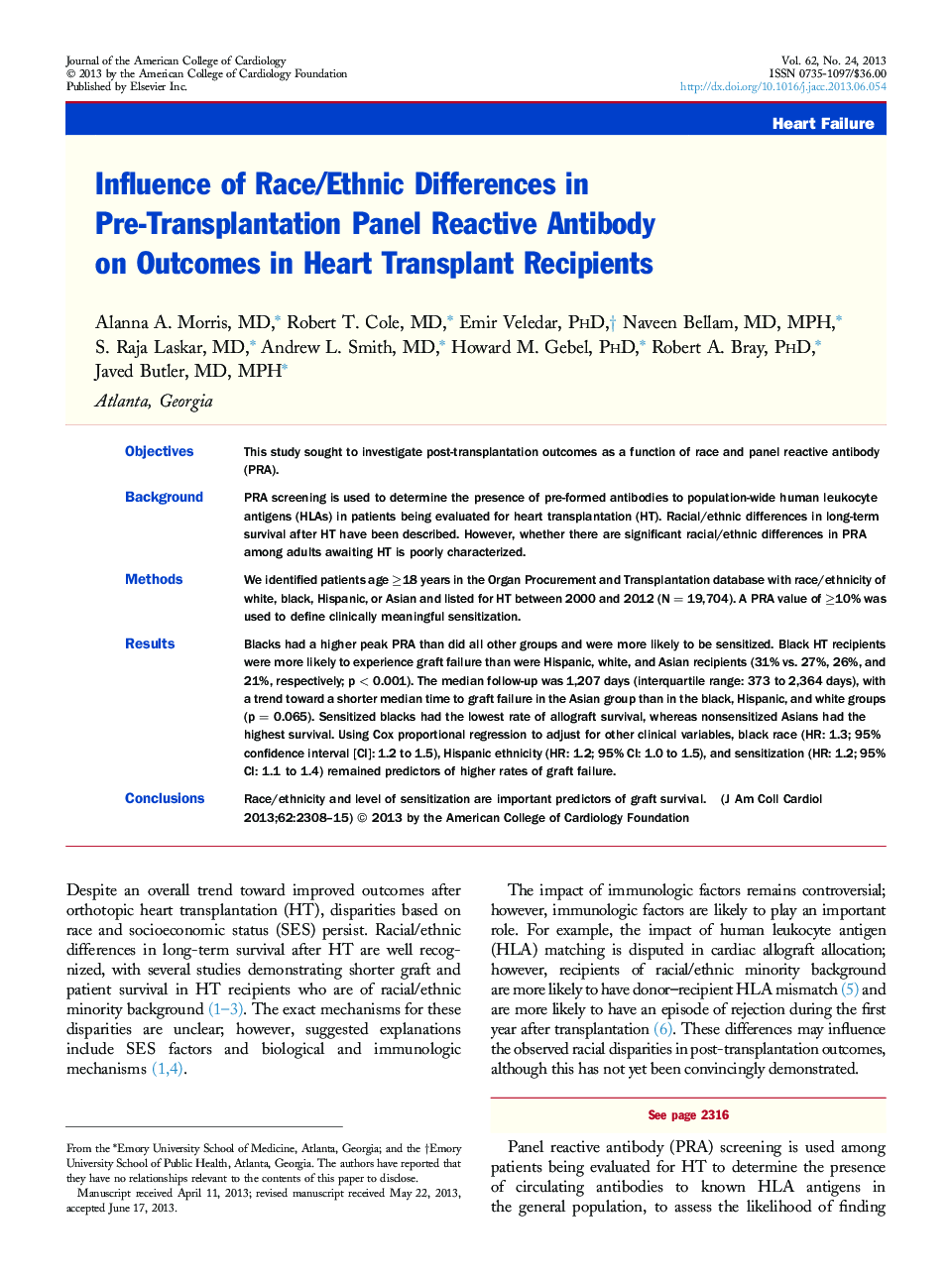| Article ID | Journal | Published Year | Pages | File Type |
|---|---|---|---|---|
| 2945187 | Journal of the American College of Cardiology | 2013 | 8 Pages |
ObjectivesThis study sought to investigate post-transplantation outcomes as a function of race and panel reactive antibody (PRA).BackgroundPRA screening is used to determine the presence of pre-formed antibodies to population-wide human leukocyte antigens (HLAs) in patients being evaluated for heart transplantation (HT). Racial/ethnic differences in long-term survival after HT have been described. However, whether there are significant racial/ethnic differences in PRA among adults awaiting HT is poorly characterized.MethodsWe identified patients age ≥18 years in the Organ Procurement and Transplantation database with race/ethnicity of white, black, Hispanic, or Asian and listed for HT between 2000 and 2012 (N = 19,704). A PRA value of ≥10% was used to define clinically meaningful sensitization.ResultsBlacks had a higher peak PRA than did all other groups and were more likely to be sensitized. Black HT recipients were more likely to experience graft failure than were Hispanic, white, and Asian recipients (31% vs. 27%, 26%, and 21%, respectively; p < 0.001). The median follow-up was 1,207 days (interquartile range: 373 to 2,364 days), with a trend toward a shorter median time to graft failure in the Asian group than in the black, Hispanic, and white groups (p = 0.065). Sensitized blacks had the lowest rate of allograft survival, whereas nonsensitized Asians had the highest survival. Using Cox proportional regression to adjust for other clinical variables, black race (HR: 1.3; 95% confidence interval [CI]: 1.2 to 1.5), Hispanic ethnicity (HR: 1.2; 95% CI: 1.0 to 1.5), and sensitization (HR: 1.2; 95% CI: 1.1 to 1.4) remained predictors of higher rates of graft failure.ConclusionsRace/ethnicity and level of sensitization are important predictors of graft survival.
